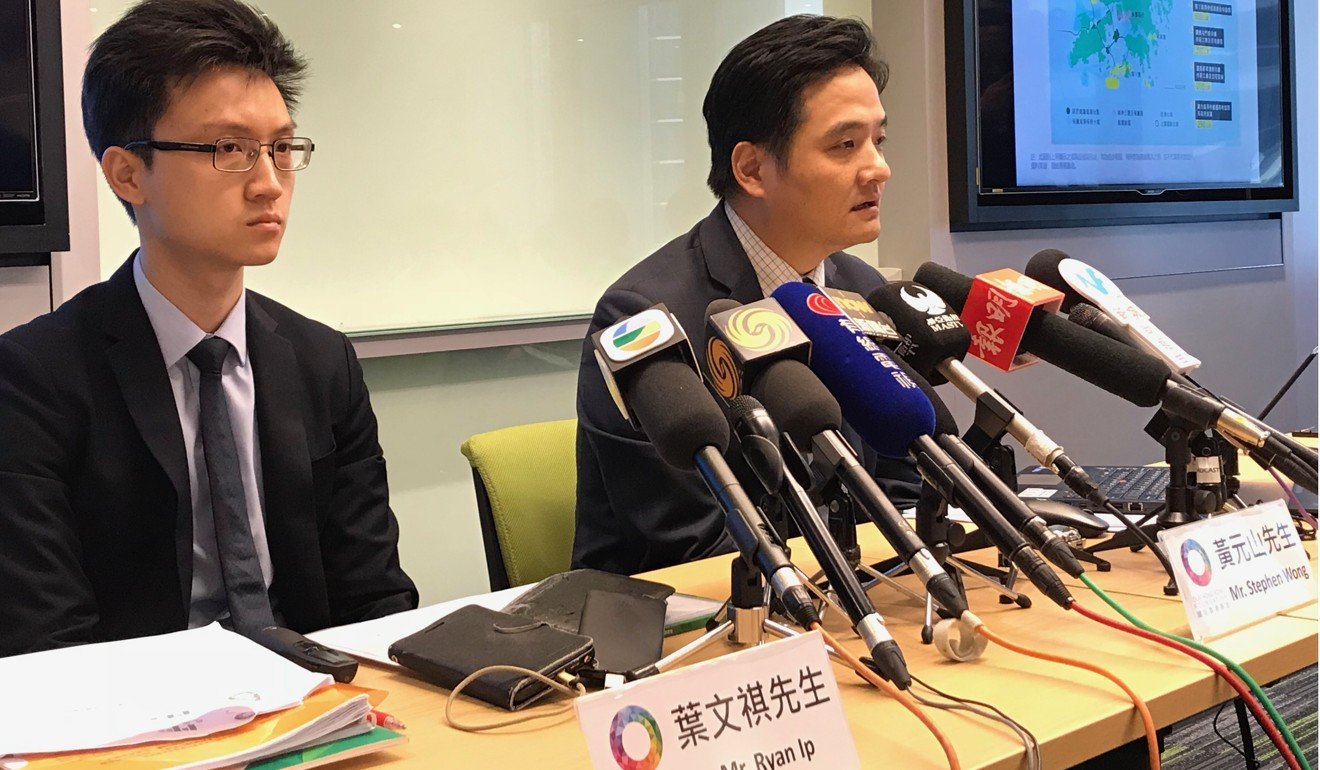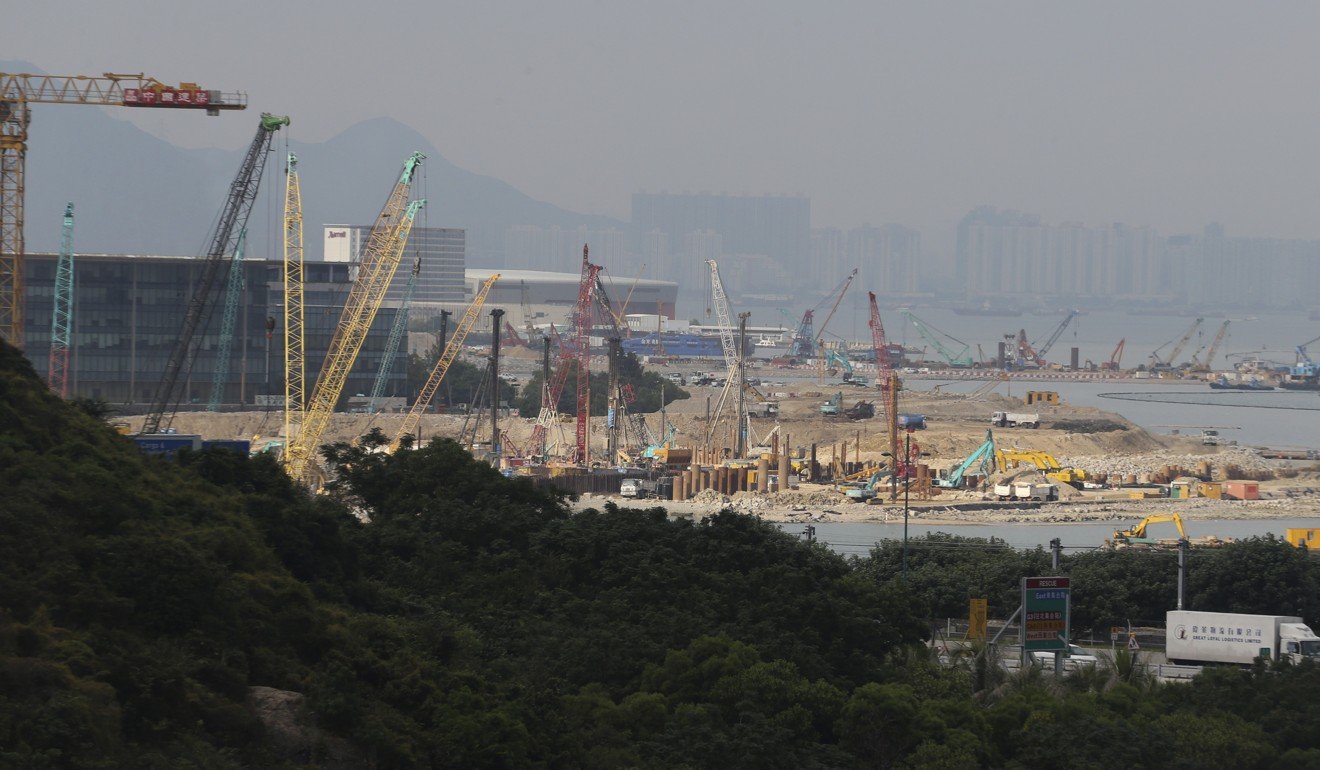
Reclamation receives ‘strong’ support as option to solve Hong Kong land shortage: survey
Proposal to reclaim land from the sea, often criticised as environmentally unfriendly, popular especially among people older than 60, according to poll by think tank
The Our Hong Kong Foundation, a think tank founded by former chief executive Tung Chee-hwa, said the findings showed a “strong public conviction” for reclaiming land from the sea and the need to develop new towns.
The survey, commissioned by the foundation and carried out by Chinese University’s Hong Kong Institute of Asia-Pacific Studies, polled 1,002 people over the phone in March.
Don’t blame developers for land ‘shortage’ – government policies are the real problem
The survey also sought views on building more new towns, like the nine already built over the past 50 years in Sha Tin, Tseung Kwan O and other places. Among 62.3 per cent who agreed that Hong Kong should develop new towns to support its long-term needs in the next three decades, almost 60 per cent believed the city needed to add at least two new towns the size of Sha Tin, or equivalent to at least 7,200 hectares (17,700 acres) of land.

“The reason Hong Kong people are having to live in small and cramped spaces is that we have not built any new towns in more than a decade,” the foundation’s deputy executive director, Stephen Wong Yuen-shan, said while announcing the results.
Hong Kong has not developed any new towns since 2000, and the completion of any new development areas, such as Kwu Tung North and Fanling North in the New Territories, is not scheduled until 2031.
Researchers pointed out that among those in favour of reclamation, the elderly tended to support the idea, while younger people tended to oppose it.
Of those aged 60 or above, 56 per cent supported reclamation and 20.8 per cent were not in favour. Among those who were 18 to 29 years old, 46.7 per cent opposed the idea, while only 28.7 per cent backed it.
Reclamation alternative: Dutch researchers say floating islands could help solve land shortage
“The older generation have clearly witnessed how building new towns in the past has been able to give people a roof over their head and help them be able to put food on the table,” Wong said.
The findings came just after a government-appointed committee, the Task Force on Land Supply, launched a public consultation last week.
The five-month consultation will gauge public opinion on which from 18 options would be best to fix a shortage of 1,200 hectares of land to cover housing and economic needs in the next three decades.
But reclamation is controversial. Green groups have staunchly opposed it due to concerns that construction in the sea would threaten marine species and their habitats.
Could burrowing into Hong Kong’s hillsides help tackle its land shortage?
The foundation has advocated large-scale reclamation, which is one of the consultation’s 18 options. Wong said the city would need 9,000 hectares, equivalent to the size of three Sha Tin new towns, instead of the government’s projected 4,800 hectares.
The survey did not touch on any of the other options.
Wong, who is also a member of the task force, sidestepped questions of conflict of interest given his role with the foundation, saying he was only representing the foundation, and not speaking as a task force member.

Stanley Wong Yuen-fai, the task force chairman, said the panel as a whole should not take any position on any of the given options, but individual members were entitled to their own views.
“As long as [Stephen Wong] is speaking on behalf of himself and the think tank, that’s OK,” he said. “There are bound to be different views. The more discussions, surveys, the better. We just don’t want one view to be heard among the community.”
Look beyond brownfield sites to solve land shortage issues, think-tank led by Tung Chee-hwa urges
However, Lee Wing-tat, chairman of policy think tank Land Watch, who is not a task force member, said it would be better for members to avoid advocating specific options during the public consultation period.
“On the one hand, they say that the task force as a whole does not have any stance towards any particular options, but individual members keep expressing their views on a few of them. This could jeopardise the public consultation,” Lee said.
“There are other people with the think tank who could present their findings instead of Stephen Wong.”
Separately, Handy Homely Housing Working Group, co-founded by surveying sector lawmaker Tony Tse Wai-chuen, made a new proposal to increase supply of low-rent public housing by attaching prefabricated flats to existing public rental housing estates.
Tse said four prefab homes could be attached to both ends of a corridor on each floor, and an extra floor of prefab homes could be added on top of the roof. In this way, each block could have an average of 50 additional flats, he said.
Tse said a prefab home of about 250 sq ft cost only around HK$300,000, much cheaper than a traditional concrete-and-steel public rental flat that cost about HK$860,000.
Greg Wong Chak-yan, who is the task force’s vice-chairman and a registered structural engineer, said the proposal required enough spaces on both ends of a public rental block.
He added that in some rental blocks, the walls at both ends of the corridors were structural walls that held up the whole buildings, and serious alterations such as attaching more flats to the corridors might lead to collapse.
Wong said he would not object to the proposal all together, but that it required careful consideration.

